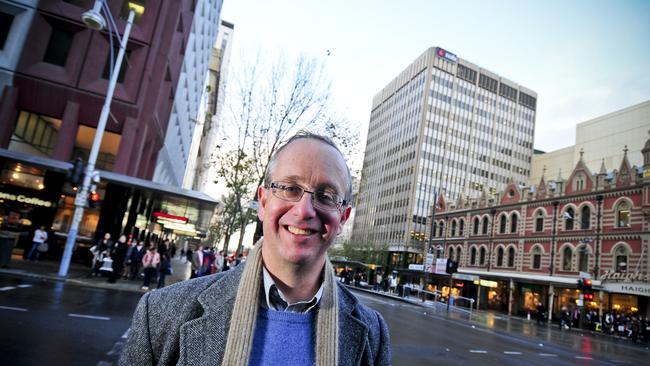Dan Tehan’s uni fee changes lead to more funding imbalances

As the day developed, it became clear that Education Minister Dan Tehan had served up something far stranger. Everyone is using the handle of the humanities because we all know that they are declining and won’t get you a job. The frailty of the evidence underpinning that myth is a battle for another day.
Instead, the headline fact was an attack on law and economics, the social and behavioural sciences, management and commerce, and some of the humanities (excluding languages). Economists go into the luxury service sector along with sociologists, geographers, lawyers, historians, and would-be journalists.
READ MORE: Next job, research reform | High fees for social work degrees ‘crazy’ | Tehan plays reform roulette | Australia joins computing elite | Bewildered by the the changes
My discipline, English, seems favoured, which is a bewildering change. Suddenly I’m four times cheaper (and more valuable?) for a student than the film studies person next door or the historian up the corridor. I’m thirteen times more valuable in the government’s money, though I’m not sure that’s enough to make it a good day.
Strange things are inevitable. A student studying Indonesian will pay four times more for an Indonesian politics unit than for a language one – that is the reverse of what they cost to deliver. A colleague in digital humanities from another university reckons that “if I decide to teach the subject of distant reading (a discipline which applies computational methods to literary data) under the English umbrella I might be 25 per cent of the price I am when I teach exactly the same skill with exactly the same group to history students.”
All this confusion may be refreshingly unideological, but it will generate epic gaming of subject codes by universities rather than real innovation. I certainly do not see how it “will address the misalignment between the cost of teaching a degree and the revenue that universities receive to teach it.”
“Address” here must just mean “move the misalignment around a bit”, because a lot of money will still be pouring out of the humanities to fund scientific research. Only reducing institutions’ dependence on rankings will allay that.
A fresh set of funding imbalances seems an odd priority in a real crisis. No-one gets a straight answer to questions about whether there is any fresh money here to fill the international student gap, from the government or students.
In his address, Minister Tehan was palpably sincere in his desire to see young people preparing themselves for actual jobs. He also seems to believe that there are a lot of youths wilfully choosing degrees without a thought for job prospects. I never meet those students at open days. I actually spend a fair bit of time trying to convince students (and their parents) to choose something they are interested in so that they actually learn something and hit the job market with some momentum.
My source in student recruitment has better evidence and is forthright on this. “It’s worth noting that high school students are already very employment focused when looking at university options. It’s the first question I get in just about every school visit, especially in lower income areas. This is not going to make them more employment focused, they’re already there.”
She also points out that short term employment outcomes for both BAs and BScs are mediocre and they catch up to the field over the medium term. If there’s fine-grained thought on disciplinary outcomes behind the announcement, I look forward to seeing it. And we’re all guessing about the future since COVID anyway.
If the proposal has a logic consequence, it seems that it will reduce the number of graduates equipped to analyse and question social, cultural, economic, and political phenomena. Do we really need many fewer citizens who can do that?
Robert Phiddian is Professor of English at Flinders University. He is expressing these views in his personal capacity.



When I heard about the supposed funding attack on the humanities on the radio in bed on Friday, I was inclined to stay there. Not the culture wars again!